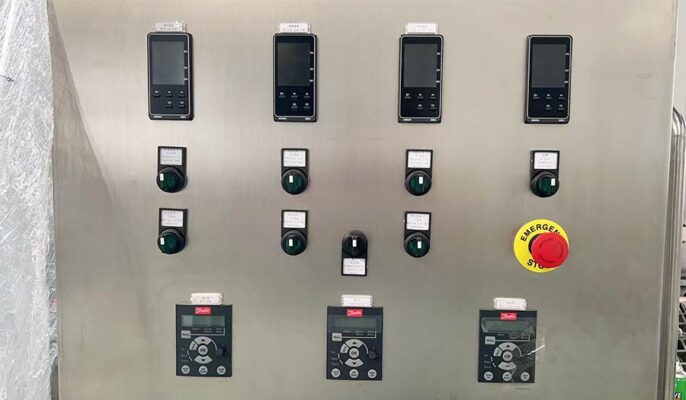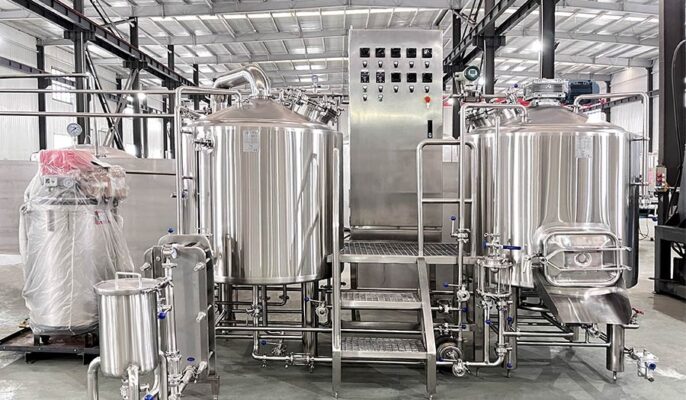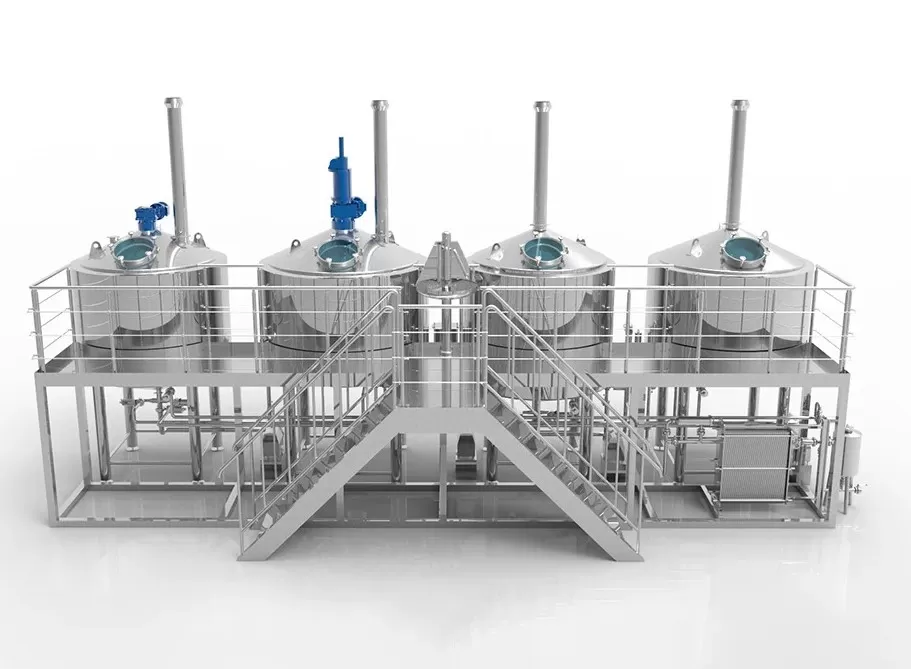There are many advantages to using PLC controls in a brewery, PLC systems offer excellent flexibility and programmability. With simple programming and configuration changes, they can be adapted to different production needs and processes, resulting in a more flexible and adaptable production process. In this guide, we’ll come together to explore the various advantages of PLC in breweries and how they allow brewers to better produce and control their beer.
What is PLC control in a brewery?
PLC stands for Programmable Logic Controller. In breweries, PLC control systems are typically used for the control and monitoring of automated production lines.PLC systems consist of hardware and software, with the hardware part including the central processor, input/output modules, memory, and communication modules, while the software part is programmed to implement various control logic and functions.
In a brewery, PLC systems can be used to control a variety of brewing processes, including temperature control during fermentation and maturation, filling and packaging, and recipe management. In a typical brewery or beer bar control system, temperature sensors, pressure sensors, and other input devices are connected to PLC input modules. The PLC program then uses this input data to control output modules that are connected to valves, pumps, and other control devices to ensure the stability and quality of the production process.
Characteristics of a PLC for apparatuur voor het brouwen van bier:
- PLC controllers serve to control the physical variables in the processing system, making it more efficient than a manually operated system;
- The is small and lightweight;
- PLC has excellent performance under low voltage conditions;
- small size and lightweight;
- efficient price/performance ratio;
- high reliability (fault tolerance).

What is a PLC beer brewing system?
The PLC beer brewing system is a modern and innovative device that simplifies the beer-making process by automating all stages from mashing to fermentation. It allows the brewer to easily control and monitor the brewing process, resulting in consistent, high-quality beer.
How the PLC beer brewing system works:
- HOP AND GRAIN SELECTION: The brewing journey begins with the selection of the highest quality hops and grains. The automated system gives the brewer the freedom to experiment with different combinations to create unique flavors.
- Brewhouse process: During brewhouse, crushed grains are mixed with hot water to convert starch into fermentable sugars. An automated system ensures precise temperature control and stirring for optimal sugar extraction.
- Boiling and hopping: Boiling the wort is a critical step in the beer brewing process, and automated systems handle this step with precision. Brewers can add hops at specific intervals to add bitterness, flavor, and aroma to the beer.
- Fermentation: The automated brewing system carefully regulates the fermentation temperature, allowing the yeast to work its magic to produce alcohol and carbonation.
- Conditioning: After fermentation, the beer is conditioned and the flavor matures and stabilizes. The automated system maintains ideal conditions for optimal results.
Advantages of PLC control
Automated recipe development
Creating new beer recipes requires precise and accurate measurements. PLC controllers allow brewers to automate this process, ensuring that the proportions of malt varieties, hops, and other ingredients are accurate. By entering the required parameters into the controller, brewers can brew consistent flavors batch after batch.
Monitoring and Controlling Temperature
Temperature plays a critical role in the brewing process, affecting the fermentation and maturation stages.PLC controllers provide real-time temperature monitoring and control, allowing brewers to maintain optimal conditions throughout the beer production process. This automation minimizes the risk of off-flavors due to temperature fluctuations and ensures that yeast fermentation runs smoothly.
Milling and mash
PLC controllers enhance the milling and mash steps by controlling grain size consistency and optimizingmash temperatures. The controller precisely regulates the milling process to ensure that the grains are uniformly pulverized. Then, during the mash phase, the PLC controller monitors and manages the temperature profile, increasing enzyme activity and breaking down carbohydrates into fermentable sugars.
Filtration and rinsing
Efficient filtration and rinsing are essential to extract the desired sugars from the grain bed without introducing unwanted tannins. With PLC controllers, brewers can automatically control flow rate, temperature, and time to ensure consistent results with minimal human intervention. Precise control allows brewers to maximize efficiency and maintain high-quality wort.
Optimal yeast handling
Yeast, the magic ingredient that transforms wort into beer, needs to be handled with care during the fermentation process. The PLC controller creates an environment conducive to yeast growth by precisely controlling temperature and monitoring dissolved oxygen levels. With real-time data analysis, brewers can detect any deviations or potential problems so they can intervene promptly.
Monitoring Fermentation Variables
During the fermentation process, various parameters such as pH, specific gravity, and temperature need to be monitored, and the PLC controller automates this monitoring process, collecting data continuously. Winemakers can set desired thresholds and receive alerts when any of the variables fall outside of acceptable ranges. This real-time monitoring ensures consistent fermentation, minimizing the risk of off-flavors and reducing batch-to-batch variation.
Intelligent Filling System
PLC controllers enable advanced filling systems that improve the packaging phase. Precise flow control, bottle position monitoring, and automatic capping systems ensure stable filling levels and prevent spills. These features eliminate waste and increase productivity while maintaining beer quality and reducing the risk of contamination.
Kwaliteitsverzekering
Quality control is vital for breweries to ensure consistent product quality, and PLC controllers play a vital role in automating quality checks such as checking bottle labeling, seal integrity and pack weight control. By automating these tasks, breweries can identify and resolve any anomalies promptly, thus maintaining product quality and customer satisfaction.

Improve efficiency and reduce costs
PLC controllers streamline the brewing process, optimize resource management, and minimize waste. By automating time-consuming tasks, breweries can free up labor for other critical operations. In addition, the precise control and monitoring provided by PLC technology reduces the likelihood of costly errors, ultimately increasing profits.
Brewing Consistency
One of the significant advantages of PLC controllers is their ability to deliver consistent results. By eliminating human error and ensuring precise control of production variables, breweries can replicate recipes with unparalleled accuracy. This consistency is critical to building a loyal customer base and establishing a recognizable brand image.
PLC Beer Brewing Systems Trend Development
PLC beer brewing systems have certainly changed the landscape of home brewing. Easy to use, consistent, and with customizable features, these systems have opened up new horizons for novice and experienced brewers alike.PLC control systems offer many tangible benefits to breweries, helping to increase productivity, quality, and reliability while reducing costs and resource consumption. As technology advances, we can expect brewing systems to have even more sophisticated features and automation.




